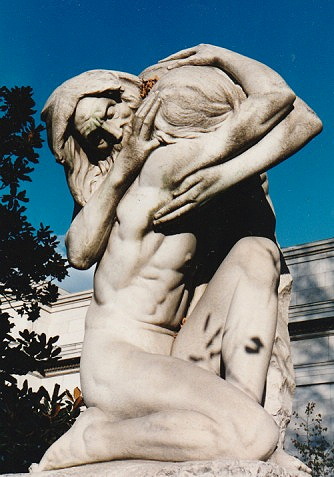
At various times in my spiritual journey, I have commented that Jesus could have benefitted tremendously from the efforts of a darned good editor. Now maybe it’s because I am a writer, but I can’t help thinking that if He had one, the Beatitudes would have been easier to memorize. Perhaps we would know for certain whether that particular sermon was delivered on a plain, on a mountainside or was a regular feature of His set list. Perhaps we would know how many people were in attendance when He provided lunch for everyone and perhaps some of His parables would be easier to understand.
Now, don’t get me wrong – when it comes to storytelling, I believe Jesus was right up there with Aesop in spinning a yarn, but some of them require a dab of context. While we may be able to follow the general plotline of the Mustard Seed, unless you understand that it was considered to be an unruly weed back in the day, you can’t appreciate why it might be considered a theological threat. According to some biblical scholars Jesus was known to tell a few jokes now and again, but unless you are up on First Century pop culture and socioeconomic references, I guess those punch lines fall into a “you had to be there” kind of thing.
But in my opinion, the Parable of the Prodigal Son is a literary masterpiece. It stands the test of time. It’s easy to understand and it tends to resonate with everyone. It does not require any inside information to grasp the symbolism of the three main characters. God is the sympathetic father who gives his child the free will to screw up his life however he sees fit and who manages to forgive even when the other son, who represents any number of innocent bystanders, thinks he’s crazy for doing so.
That alone makes it an incredibly powerful story, but what makes it a classic is the author’s ability to help you identify with more than one character, depending on the circumstance in which you encounter it. If the Parable of the Prodigal Son had been a stage production when I was little, I would have easily played the part of the wayward kid who constantly makes mistakes and who hopes her parents would still love her as she learned her life lessons.
As a teenager, I would be that resentful youth who eschewed the idea that “good things come to those who wait.” I wanted it all and I wanted it now. And on occasion, when my parents gave me the freedom and responsibility I was ill prepared for, they were there to take up the slack when I crawled back in defeat and willing to admit that they were right. And of course as an adult, I have been the judgmental older brother who shakes his head in amazement as family members continue to forgive those folks who routinely take advantage of them.
But the older I get, the more I realize we are called to be the father in the story: the person who never stops hoping that someone will turn their life around and who is willing to forgive them and rejoice with them when they do. Like Shakespeare’s King Lear, it is a most demanding role. It is not as much “fun” as the other two parts and it is one that requires the most experience and nuance. That’s why the Master thespian best plays it while the rest of us are second-rate pretenders to the throne.
The Parable of the Prodigal Son is a story that needs no reboot or re-imagination. It is perfect the way that it is. It is a plot that remains worth reading for it is a tale that never grows old, a story that takes on new meaning each time we read it and one that we are happy to return to no matter how long we have been away.
Today’s readings for Mass: MI 7:14-15, 18-20; PS 103: 1-2, 3-4, 9-10, 11-12; LK 15: 1-3, 11-32.
